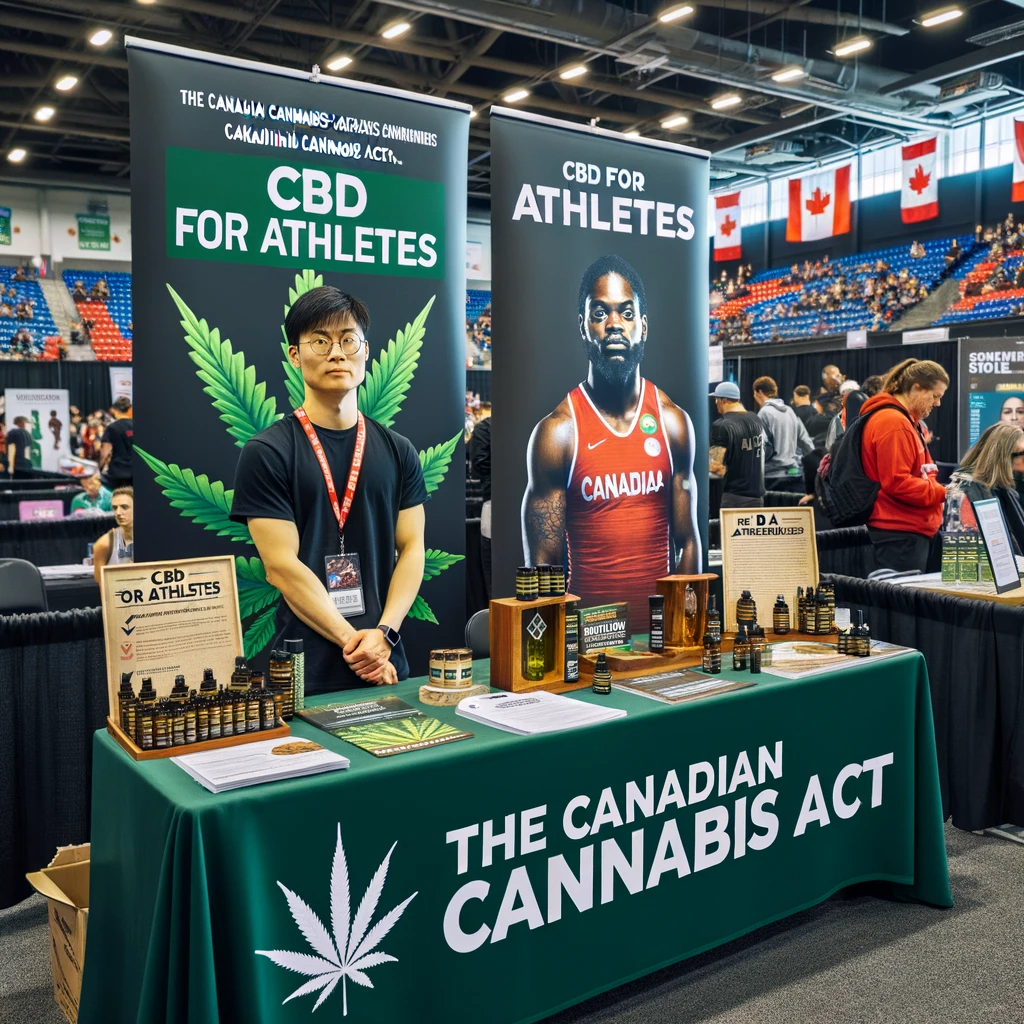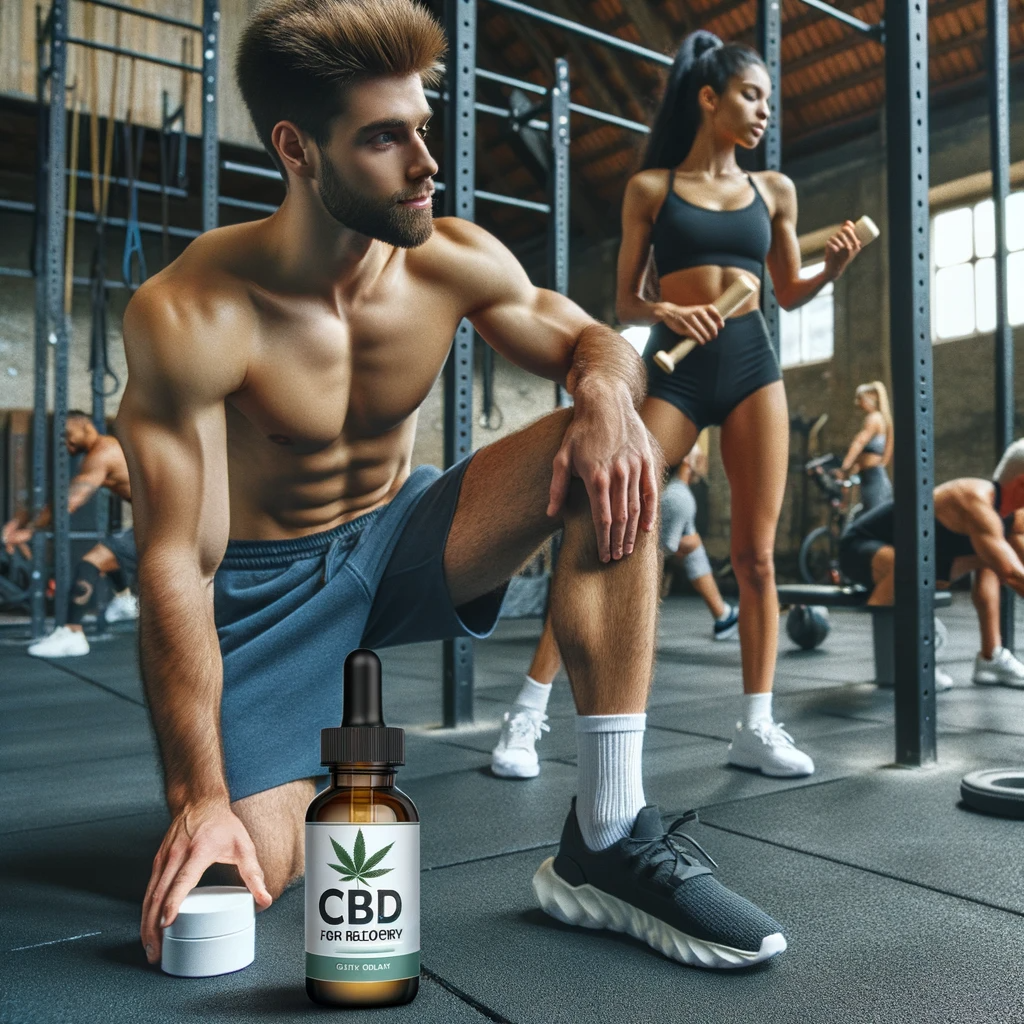Introduction
The landscape of sports medicine and athlete wellness has dramatically shifted with the advent of cannabidiol (CBD) as a touted recovery aid. In Canada, the legal framework surrounding cannabis and its derivatives, including CBD, has undergone significant changes since the country federally legalized cannabis in October 2018. For athletes, understanding the legalities, benefits, and restrictions of CBD use is essential for both their health and their careers. This article provides a comprehensive guide on the legal use of CBD for athletes in Canada.
The Canadian Cannabis Act and CBD

Under the Canadian Cannabis Act, CBD is legal. However, it is regulated similarly to other cannabis products. This means that while athletes can legally access CBD for therapeutic purposes, they must adhere to regulations regarding its purchase and consumption.
1. Legal Sources for CBD
Athletes should acquire CBD products from authorized retailers only. The source matters not only for legal reasons but also for the assurance of product quality and purity. Illegally sourced CBD may contain THC (tetrahydrocannabinol), the psychoactive compound in cannabis, at higher levels than the legal threshold, leading to potential health risks and anti-doping violations.
2. CBD and Anti-Doping Regulations
While CBD is not on the World Anti-Doping Agency’s (WADA) list of prohibited substances, THC is. It’s critical for athletes to verify that their CBD products do not contain THC above 0.3% concentration, which is the maximum limit allowed in hemp-derived CBD products in Canada. However, due to the possibility of cross-contamination or mislabeling, athletes should be cautious when using CBD products.
3. Travel Considerations
When traveling for competitions, athletes must be aware of international laws regarding CBD. While legal in Canada, many countries still have strict anti-cannabis laws, which include CBD. It is advisable to research destination laws and potentially refrain from traveling with CBD products to avoid legal complications.
Potential Benefits of CBD for Athletes

CBD has been attributed to various health benefits that could aid athlete recovery and performance, including anti-inflammatory properties, pain relief, stress reduction, and improved sleep quality. These claims have garnered interest among athletes looking for legal and safe ways to enhance recovery and manage the physical demands of their sports.
1. Inflammation and Pain Management
CBD’s anti-inflammatory effects are of particular interest for athletes dealing with injuries or post-training recovery. By potentially reducing inflammation, CBD may help alleviate pain and speed up recovery times.
2. Stress and Anxiety
Athletes often face significant stress and anxiety, from performance pressure to the demanding training schedules. CBD is reported to have calming effects that could help in managing the psychological strains associated with competitive sports.
3. Sleep Quality
Good sleep is crucial for athlete recovery. CBD is believed to have a positive effect on sleep patterns, helping athletes achieve a restful state that’s conducive to recovery.
Guidelines for Athletes Using CBD in Canada
For Canadian athletes considering CBD use, following these guidelines will help navigate the legal landscape:
- Ensure Legal Compliance: Always buy CBD products from legal and reputable sources in Canada.
- Check for THC Content: Use third-party tested CBD products that guarantee THC levels are within the legal limits.
- Consult Healthcare Providers: Before beginning any CBD regimen, seek advice from a healthcare professional to understand potential risks and interactions with other medications.
- Stay Informed on Regulations: Keep up-to-date with changes in both national and international regulations regarding CBD.
- Educate on Anti-Doping Policies: Understand anti-doping policies and how they apply to CBD use.
Challenges and Considerations
Despite its legal status, athletes using CBD in Canada face challenges. The regulation of CBD products is still evolving, and the market can be inconsistent in product quality and labeling accuracy. Furthermore, the scientific community is still researching to fully understand CBD’s effects and potential side effects.
The Research Behind CBD and Athletic Performance
While anecdotal evidence abounds regarding the efficacy of CBD in enhancing recovery and performance, scientific research is in its nascent stages. Clinical trials are currently underway to explore the full range of CBD’s physiological effects. Preliminary studies have suggested that CBD may help with conditions like chronic pain and anxiety, which can indirectly benefit athletic performance by enabling better training and recovery processes.
Skepticism and Advocacy
The medical community remains cautious, advocating for more comprehensive studies to establish clear benefits and guidelines for CBD use in sports. On the other hand, many athletes have become vocal advocates for CBD, sharing personal success stories about its role in their wellness regimens.
CBD Dosage and Administration
Determining the appropriate dosage of CBD can be challenging due to the variability in individual responses and the lack of standardized dosing guidelines. Athletes often start with a low dose and gradually increase it until they achieve the desired effects. The administration method—whether it be oils, tinctures, capsules, or topical applications—also affects the dosage and onset of effects.
Monitoring and Adjusting Dosage
Athletes are encouraged to monitor their response to CBD carefully and adjust their dosage as needed, with guidance from healthcare providers to avoid any adverse effects.
Best Practices for Athletes Using CBD
For athletes incorporating CBD into their training regimen, best practices go beyond legality and dosage considerations.
1. Keep Detailed Records
Maintaining a log of CBD use, including dosage, timing, and effects, can help athletes track its impact on performance and recovery.
2. Prioritize Quality
Choosing high-quality, certified CBD products ensures that athletes are consuming what is on the label and nothing more—critical for both health and compliance with anti-doping regulations.
3. Listen to Your Body
Athletes should listen to their bodies and be aware of how CBD interacts with their system. What works for one individual may not work for another.
4. Transparency with Professional Circles
Being transparent with coaches, medical staff, and anti-doping agencies about CBD use is vital. This can help mitigate any potential risks and ensure that everyone is on the same page regarding the athlete’s health and compliance.
The Role of Healthcare Providers
Healthcare providers can play an essential role in an athlete’s decision to use CBD. They can offer personalized advice based on the athlete’s health history and current medications, and help navigate the complex information surrounding CBD use. Providers can also educate athletes on the importance of sourcing CBD from reputable manufacturers that provide third-party testing results, ensuring the absence of prohibited substances.
The Canadian Sports Landscape and CBD
The sports community in Canada is increasingly recognizing the potential of CBD as a wellness tool. Some professional sports leagues have started to examine their policies on CBD and cannabis to align with current laws and scientific evidence.
Future Implications
As attitudes continue to evolve and more research becomes available, we may see broader acceptance and clearer guidelines for the use of CBD in professional sports. Canadian athletes could be at the forefront of this shift, given the country’s progressive stance on cannabis.
Conclusion
In summary, the legality of CBD in Canada offers athletes a unique opportunity to leverage this non-psychoactive compound’s therapeutic potential. However, navigating the interplay between legal parameters, sports regulations, and the individual considerations of wellness is complex. For athletes, the key to successfully incorporating CBD into their regimen lies in education, diligent sourcing, and a conscientious approach to its use.
As the body of evidence grows and regulations continue to evolve, CBD is poised to become an integral component of athletic training and recovery programs. Canadian athletes who stay informed and proactive in their use of CBD will be well-positioned to harness its potential benefits while upholding the integrity of their sport and their health.
